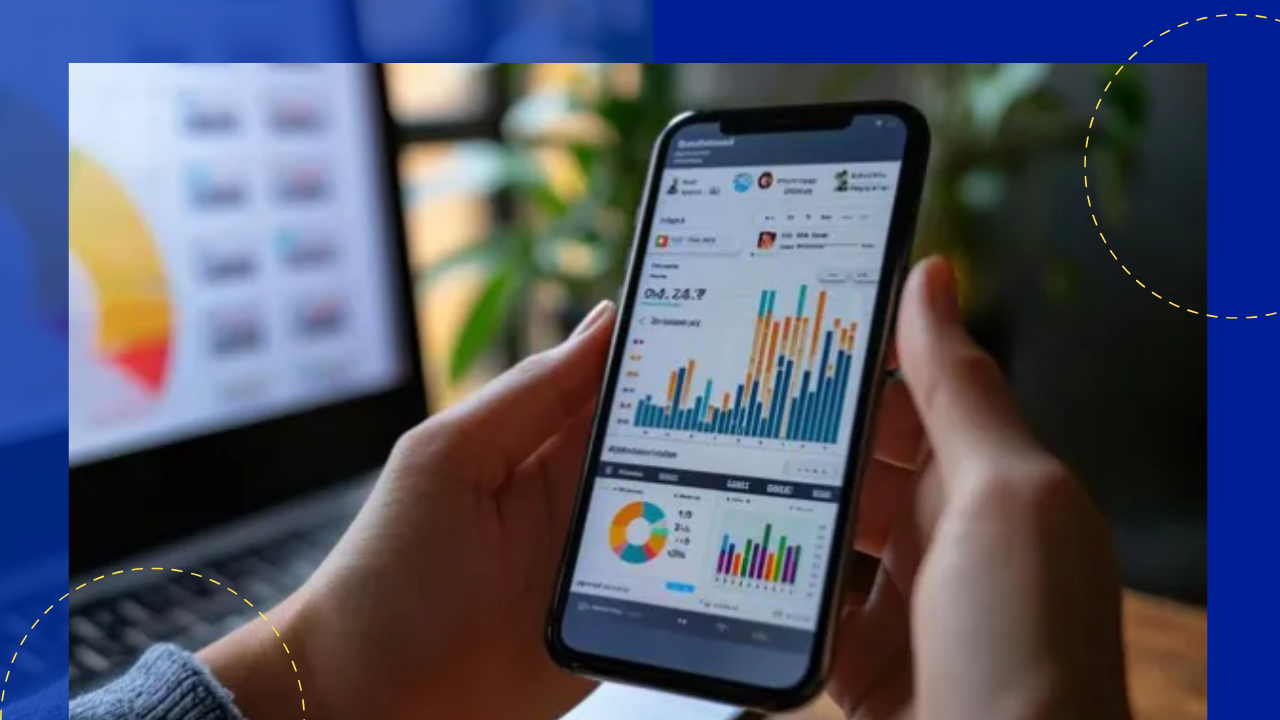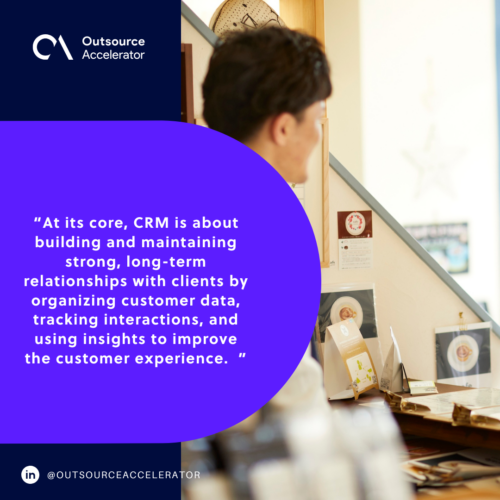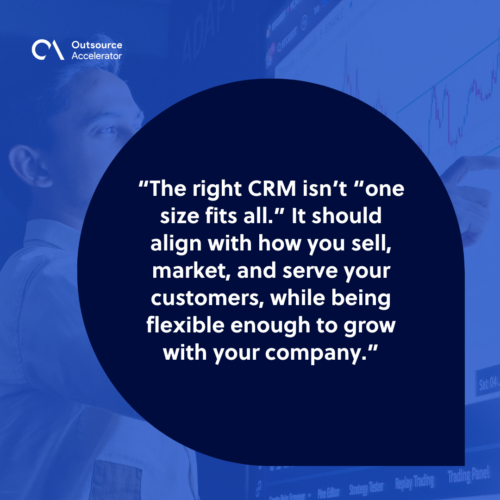Your quick guide to a smarter customer relationship management

What is customer relationship management?
Customer Relationship Management (CRM) is both a business strategy and a set of tools or software systems that companies use to manage and analyze interactions with their customers and potential customers throughout the customer lifecycle.
At its core, CRM is about building and maintaining strong, long-term relationships with clients by organizing customer data, tracking interactions, and using insights to improve the customer experience. The goal is to improve customer satisfaction, loyalty, retention, and ultimately drive sales growth.
Customer relationship management software (like monday.com) helps centralize customer information—such as contact details, purchase history, communication logs, and preferences. This enables various departments (sales, marketing, customer service) to work with a single data source.
Furthermore, it’s essential to recognize that CRM isn’t just software; it’s a comprehensive approach. It combines people, processes, culture, and tools to build stronger, more profitable relationships with customers.

5 components of a CRM
To build or select a good CRM, it helps to understand its core components. Different sources break them down variously, but there are recurring themes that most systems share.
Here are several major components of customer relationship management systems:
1. Customer data management
This is the foundation of any CRM. It involves collecting, storing, and organizing customer information such as contact details, purchase history, communication records, and preferences.
Proper customer data management ensures that teams always have a centralized data source for every customer, enabling personalized service and informed decision-making.
2. Sales and marketing automation
A CRM system helps automate repetitive tasks like sending follow-up emails, scheduling appointments, qualifying leads, and nurturing prospects. Automation not only saves time but also ensures consistency across customer touchpoints.
3. Customer service
This is especially relevant as customers take the customer service experience a lot into consideration. According to a survey by Verint, 86% of consumers would purchase from a brand again following an “amazing” customer experience.
In addition, 81% responded that they would recommend that brand to friends and family.
4. Analytics and reporting
Customer relationship management is not just about collecting data; it’s also about turning data into actionable insights.
Dashboards, forecasting tools, and custom reports help businesses measure sales performance, marketing ROI, and customer satisfaction.
5. Project management
Many modern CRMs extend beyond sales pipelines into project management. Features like task assignments, progress tracking, and workflow automation ensure teams stay aligned on post-sale activities such as onboarding, implementation, or renewals.
This integration bridges the gap between winning a customer and delivering long-term value, making CRM a cross-departmental tool rather than just a sales platform.
How to choose the right CRM for your processes
When selecting a CRM system, the goal is to find a tool that fits your processes—not the other way around. The right CRM isn’t “one size fits all.” It should align with how you sell, market, and serve your customers, while being flexible enough to grow with your company.

Here are some guiding steps to help you get started:
Map out your customer journey & internal processes
Understand all touchpoints customers have with your company, and how different teams interact with them. This helps in knowing which CRM components are most important for your business.
Identify your must‐haves vs nice‐to‐haves
Focus first on features that will immediately drive results, and leave “nice-to-have” add-ons for later.
Common CRM must-haves to consider include:
- Contact and lead management
- Sales pipeline tracking
- Multi‐channel communication
- Automation
- Integrations (email, calendar, accounting)
- Reporting dashboards
Consider scalability and flexibility
As your business grows, so will your data volume, number of users, and workflow complexity. Choose a CRM that can scale with you without becoming too expensive or difficult to manage.
Evaluate user experience & adoption
Even the most powerful CRM is useless if your team doesn’t adopt it. A system with too many unused features often overwhelms users.
According to CRMsearch, user adoption failure is the core reason for customer relationship management failure. To combat this, make sure to look for:
- An intuitive interface and minimal learning curve
- Strong onboarding and training resources
- Accessible customer support
Look at cost vs ROI
Consider both the upfront and ongoing costs of the CRM, including licenses, add-ons, and integrations. Sometimes, paying slightly more for a better-suited system results in higher returns.
Before committing, compare:
- Subscription costs vs. expected business benefits (e.g., higher sales conversion, reduced churn)
- Free trials or freemium versions
- Potential hidden costs (setup, training, premium features)
Security, compliance & data governance
Customer trust depends on data protection. When evaluating CRMs, prioritize platforms that provide enterprise-level security, encryption, and compliance with standards like GDPR, HIPAA, or SOC 2, depending on your industry requirements.
This is a very crucial business safeguard. In 2024, over 276 million healthcare records in the U.S. were breached, making 2024 the worst year ever in terms of the number of compromised healthcare records.
The same data from the HIPAA Journal revealed that hacking or other IT-related incidents now account for about 81% of reported healthcare data breaches.
These numbers show that inadequate security or compliance carries real costs and consequences. Choosing a CRM with strong security and governance features helps protect your organization from reputational damage, legal penalties, and financial loss.
Increase business productivity with monday.com
One CRM solution worth considering is monday.com. Designed to streamline workflows and foster collaboration, monday.com helps businesses improve customer relationship management while boosting overall productivity.
monday.com’s key features:
- Automation of repetitive tasks. Automate follow-ups, reminders, and task assignments, freeing your team to focus on high-value work.
- Centralized customer communication. Access shared inboxes, email templates, and complete activity tracking to ensure no customer touchpoint is missed.
- Lead & deal management. Visualize and manage your sales pipeline with drag-and-drop stages, custom lead scoring, and deal tracking.
- Dashboards & reporting. Build visual dashboards for sales forecasting, performance tracking, and progress toward business goals.
- Mobile access & cross-device support. Stay connected anywhere: log calls, update deals, and access customer data on the go.
Answering your frequently asked questions
1. What is the main purpose of a CRM?
A CRM helps businesses manage customer interactions, store valuable data, and automate workflows across sales, marketing, and customer service. Its primary goal is to improve customer relationships, increase retention, and boost revenue.
2. Do small businesses really need a CRM?
Yes. Even when you’re just starting out, a CRM can make a big difference. Small businesses often rely on spreadsheets or scattered tools, which can lead to missed opportunities and inconsistent follow-ups.
A CRM centralizes all customer data in one place, helping you stay organized, boost productivity, and build stronger customer relationships.
In fact, a study by Nucleus Research found that businesses gain an average of $8.71 in ROI for every $1 invested in a CRM. That’s proof that the right system pays for itself many times over.
The good news is that monday.com offers flexible, tailored subscription plans for small businesses and startups. You don’t need enterprise-level resources to get started!
3. What are the risks of using the wrong CRM?
Choosing the wrong CRM can create more problems than it solves. Instead of making processes easier, it may lower adoption rates, cause data silos, reduce efficiency, and risk data security.
4. Is CRM only for sales teams?
No. While sales is often the first department to benefit, CRMs are equally valuable for marketing, customer service, project management, and even operations teams, since they centralize communication and data across the organization.







 Independent
Independent




